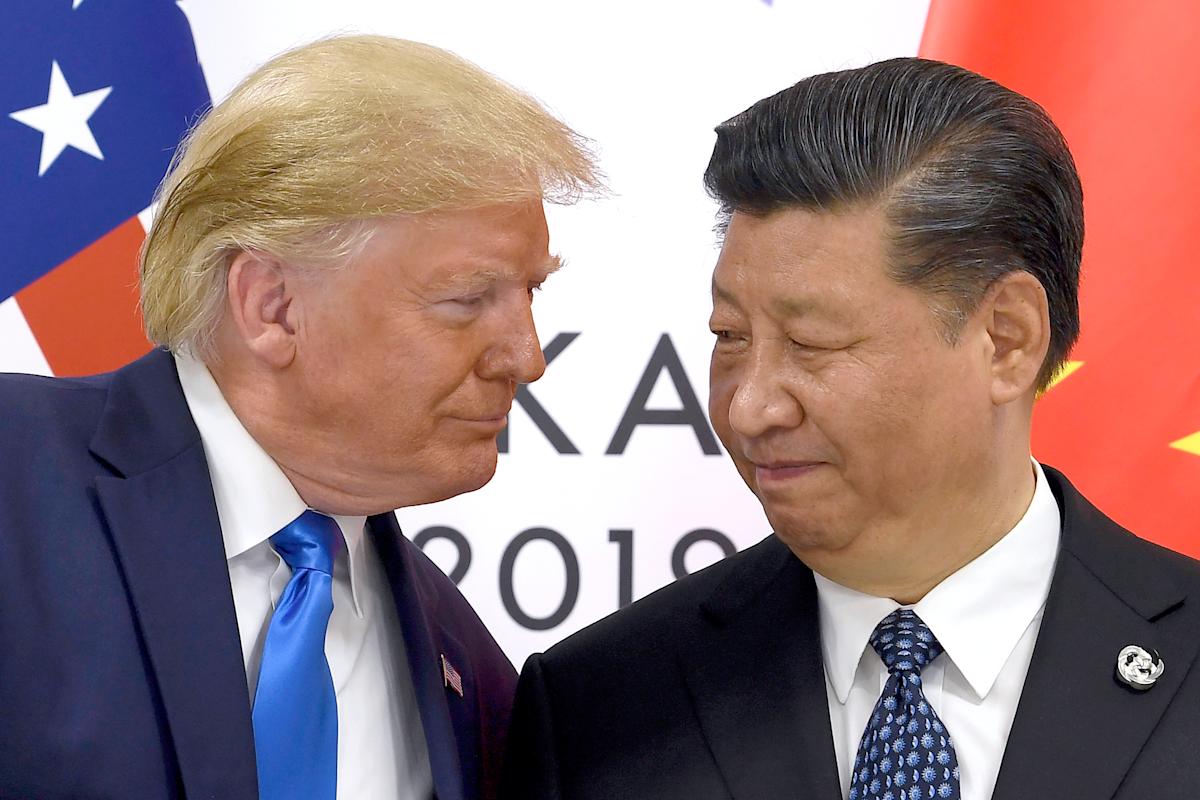President Trump on Friday said threatened high tariffs on Chinese goods were “not sustainable,” easing fears of further trade escalation between the countries.
“But that’s what the number is,” he said during an interview with Fox Business. “It’s probably not [sustainable] — you know, it could stand, but they forced me to do that.”
Trump on Wednesday confirmed that trade tensions with China remain high, telling a reporter who asked whether the two countries are headed for a prolonged trade war, “Well, you’re in one now.”
The president’s comments came despite Treasury Secretary Scott Bessent suggesting that an extension of the tariff pause between the US and China was possible. Trump on Friday confirmed that he will meet with Chinese leader Xi Jinping later this month.
“I think we’re going to do fine with China,” Trump said.
Over the past week, relations between the two countries have become increasingly strained, though both sides have sent mixed signals about just how serious the fallout could be.
China accused the US on Thursday of causing “panic” over Beijing’s export controls on rare earth materials, according to a report in China’s state newspaper, the Global Times.
Last Friday, Trump said the US would impose an additional 100% tariff on Chinese goods starting on Nov. 1 over Beijing’s plan to impose new export controls on rare earth minerals.
Since then, however, China sanctioned US units of a South Korean shipping company, while Trump threatened to further curtail trade with the country in response to its halt of US soybean purchases.
Read more: What Trump’s tariffs mean for the economy and your wallet
The US budget deficit declined for the 2025 fiscal year, due in part to a surge in tariff revenues. The deficit fell 2% for the fiscal year to $1.78 trillion, down from $1.82 trillion in 2024, according to figures released by the Treasury Department.
The White House is ready to ease tariffs on the US auto industry, delivering a major win for carmakers who have lobbied to reduce the fallout from higher import duties. The Commerce Department is set to announce a five-year extension that allows automakers to reduce what they pay in tariffs on imported car parts.
Americans are set to pay more than half of President Trump’s tariffs as companies raise prices, according to Goldman Sachs.
Early next month, the US Supreme Court is set to hear a challenge to Trump’s most sweeping tariffs — the “reciprocal” country-by-country duties that you can see in the graphic above. A ruling against the tariffs — which would be in line with lower-court decisions — could have significant ramifications for Trump’s tariff strategy.
New duties on kitchen cabinets and vanities took effect Oct. 1.
Tariffs on timber and certain wood products (like furniture) took effect Oct. 14.
LIVE 45 updates
